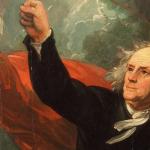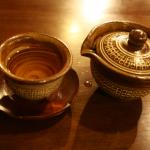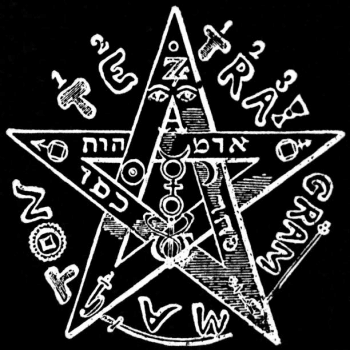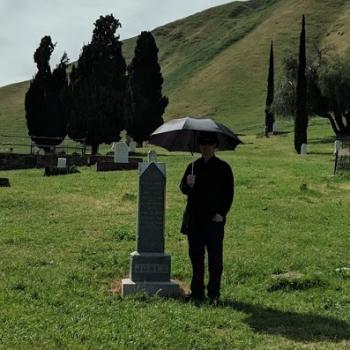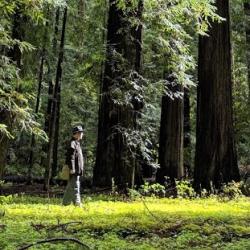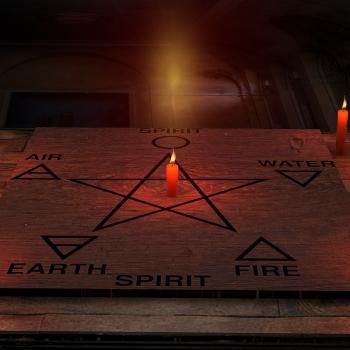In my writing, I speak rather glibly about magic, as if certain it is real. Writing a Pagan blog, I assume that my audience is at least a bit like me: people who have already come to the conclusion that there is something more going on.
As practitioners, the real world (our real world) is something that we are trying to grasp at, understand, and maybe even to make use of. I do not see much else in the Pagan blogosphere written that way, and I take it as my niche.
But I went through all the same phases as everyone else who goes down this path. There was a time when I thought only fools would believe such things, and a time when I was going mad.
Once upon a time, I thought that I was the only person who really understood. And eventually I came to place where I could at least point to this deeper world. These are all natural phases in coming to understand how little we really know.
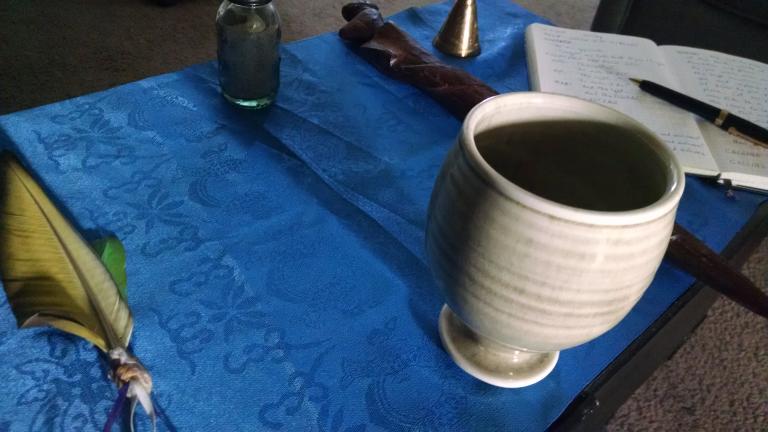
So I thought it would be useful for people to hear about my process of realization. Maybe yours will be similar, and maybe it will be totally different. But this is just the way it happened.
Knowledge, Intelligence, and Wisdom
Before I dive in, I have to give you what might be a new way of thinking about knowledge.(1) In order for you to find an answer to the question, “Is magic real?”, first we will need to delve a little into different ways of knowing.
It is useful to split knowledge into two kinds: intelligence and wisdom. These two ways of knowing are complementary.
Intelligence is the measure of how good we are at processing the kind of knowledge that exists in words. Wisdom, on the other hand, is how good we are at dealing with all the knowledge that exists outside of that boundary.
Intelligence
Being “smart” is about being better at understanding things that come from culture. It is how we, as social beings, see the world. So being smart means understanding accounting, maybe, or programming. Things that exist as frameworks that help society work better.
More broadly, Intelligence means seeing the implications of the things that we, as humans, have figured out. You see, people (as a whole) know far, far more than any one person could know.
This person is a scientist, that one is a doctor, the other is a financial manager. This person understands what other people are interested in, that one knows all about biology.
These are all kinds of knowledge that make sense, that we can talk explicitly about. These are all things that can, more or less, go in a book. They can (mostly) exist in the rational brain. That is what “intelligence” covers.
Wisdom
Wisdom is the other side of knowledge. It is the measure of how good we are at understanding everything that exists beyond what we rationally know.
This is where things reside that we can only understand by metaphor and inductive reasoning. The truth is that there is a lot more that fits into this category than into the pile of “what we can grasp in words.”
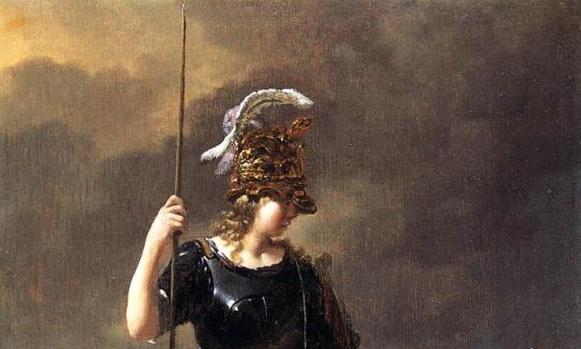
A mother does know know how she can tell the cries of her children apart. It is “real” knowledge but it can fit in no book. A gambler knows when he is “hot” and the grizzled police officer knows that this call is the one to be careful about.
But the trick is that while we can point to this kind of knowledge with words, we cannot truly convey it.
Knowledge
Intelligence is our understanding of the human map of the world. Wisdom is our comprehension of the world itself.
You would think that wisdom, capable of directly accessing reality, would be far more popular, useful, and powerful. But frankly, it is not.
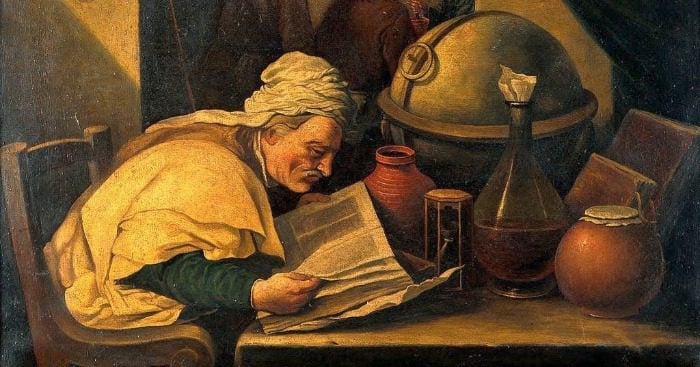
The thing is, the kind of knowledge that intelligence dictates is maybe not as powerful. But it is incredibly transportable, replicable, and record-able. The things we know in society are useful exactly because they are easily taught.
Anything we want to know that exists beyond that? Now, that’s so much harder.
Language
This all comes back to language. Words, as symbols, stand in for something that exists out there in the real world. They point to things.
Distinguishing intelligence and wisdom, between these two kinds of knowledge, means rewriting our common sense of what it means to know. Intelligence is about our understanding of those symbols and how they interrelate. Wisdom is our understanding of the relationships between the actual things that words point to.
It is a bit of a challenge to give an example (in writing) of the limits of intelligence and language. So, how about I say that we are looking at a hunter and a deer. Will the hunter kill the deer?
With intelligence, we understand the simple relationship – hunter chases deer, deer avoids hunter. We measure how skilled the hunter is, and how fast the deer is. Maybe if we know more about hunting, we can add more variables. And with that, we can certainly become better hunters.
But wisdom is different. It is not limited to what we can consciously take in. It takes in everything in the actual situation — all the things we can put in words and all the things beyond that as well.
Understanding the Real
Because the deer is not just a stand-in for the category “deer” and the man is not just a hunter. They are more than just these things, and interrelate with their environment in ten thousand ways.
Wisdom means going beyond the labels and understanding the gestalt of the whole situation. It looks at all the things that are contained in the situation, not just the ones that describe it in words.
Further, Wisdom includes all the knowledge of the real that we cannot even put into language. Weird vague things like “character” and “relationship with the land” and “intent” and so on.
Intelligence comprehends the world as we (humans) understand it. Wisdom goes further to grasp, somewhat, that which is actually real.
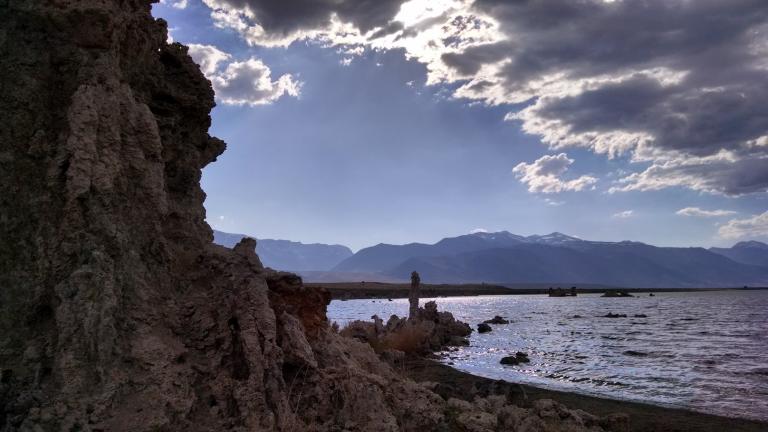
Yes, that is a very difficult distinction. It means losing hold of a very comfortable definition of “knowledge” and even of what “real” means. But it is key to being able to answer the question, “Is magic real?”
How I Learned Magic Is Real
It is not common in our culture for people to know that magic is real. When you get past the wishful thinking stages, we are pretty rare, even when we include people of true and impactful faith.
But I always believed in a certain narrative: that people who really wanted magic would keep trying and trying, until they found a way to get it right. That is, I believed that magic was something supernatural that would lift us up, past the everyday world in which we live. That is, I thought magic existed outside the real.
Oh, I wish it worked that way. That would have been so much easier.
How I Got Started
When I was a kid, I had really terrible luck.(2) To say that I was accident-prone would be a gross understatement. I was, in fact, a klutz. I was clumsy, awkward, and foolish.
It made life rough. Where others shined, I could hope only to get through things without making a mess. That was a good day.
Oh, I was smart enough, but I lacked even a modicum of connection with the reality outside the symbols in my head. As one school chum told me, I had no “common sense.”
Feeling Lucky
Being both intellectual and intuitive, however, I have a head for pattern recognition. As I made my way through my college years, I began to notice this weird thing. I never actually saw things like accidents. Like, ever. Bad things just did not happen to the people around me.
I mean, I was a klutz. I had accidents all the time. And it dawned on me, eventually, that there was probably a reason for that.
In a flash of insight, I realized if there was going to be an accident around me, I was going to be in it. This was well beyond random chance. There had to be a mechanism!
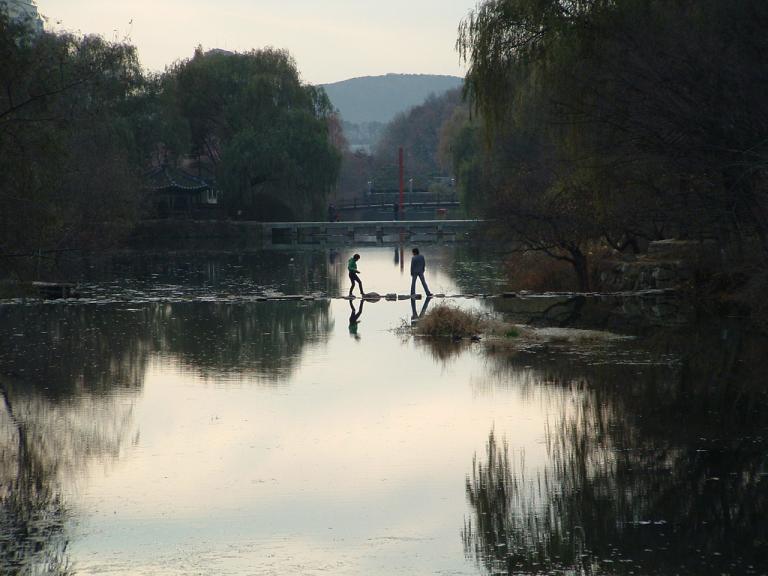
And that was my first inkling that magic was real. I had broken past “what everyone knows” — our map of the world that resides in our heads. I had begun to see proof that there was more going on than we had been told.
Down the Rabbit Hole
I think I was maybe twenty when I realized that I was a mega-bad-luck magnet. The downside was that life was tough.
The upside was that it proved that “luck” was real. Eventually, through reading, as well as a serious helping of trial and error, I learned that there were mechanisms that ruled such events and that “random” simply meant that we could not see the variables involved.
That was hardly the end of things, though. That was just the moment that I knew that there had to be something beyond what we all had been raised to know.
It isn’t so much that magic is real as the real world does not work like we think it does. With discernment, practice, and experience, we can get past the narrow cause and effect we have learned.
Believe me, I am not discounting intelligence. But I think it is worth making the case that it is not the only game in town.
Wisdom tells us what is real, beyond what we already know. Real magic is simply that knowledge, applied to help us live better lives in harmony with a deeper reality.
Notes
(1) I understand that most people probably already use these words differently, and with nuance. Still, this is a case where I need to define terms to explain an idea that was likely beyond language for some of my readers. If you use them differently, please bear with me here.
(2) The reasons for my native bad luck are complex. The solution to such luck, however, is simply self -cultivation. Not just being a good person, per se, but rather developing the virtues of faith, discipline, and equanimity.

